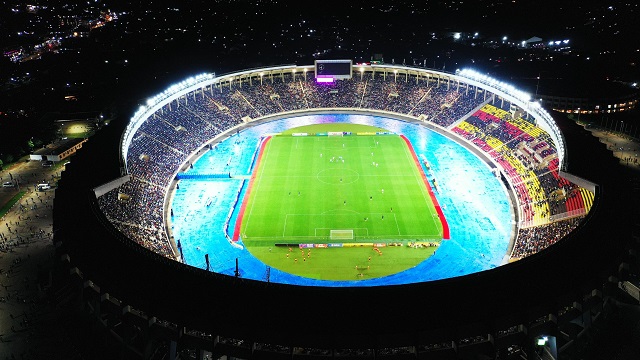AFCON: Uganda’s growing role as a regional sports hub
According to sports commentator Bbosa Ibrahim, hosting international matches for neighboring countries is a testament to Uganda's growing reputation, as a reliable sports hub in the region.

Namboole Stadium, also known as the Mandela National Stadium, has recently opened its doors to host home games for other countries, including Kenya, especially in the Africa Cup of Nations (AFCON) qualifiers.
This move is a significant development in Uganda’s sports and economic landscape, presenting both challenges and opportunities as the country hosts AFCON qualifiers.
According to sports commentator Bbosa Ibrahim, hosting international matches for neighboring countries is a testament to Uganda’s growing reputation, as a reliable sports hub in the region.
“Namboole Stadium’s readiness to accommodate these games is a clear signal that Uganda has the infrastructure and organizational capacity to host high-profile international events,” Bbosa Ibrahim said.
This could pave the way for more countries to consider Uganda as a go-to destination for their sporting events, especially when their home facilities are unavailable or under renovation.
Economic Impact
Bbosa highlighted the economic benefits of hosting these matches, stating, “The influx of teams, officials, and fans from neighboring countries brings substantial revenue to Uganda’s hospitality industry, including hotels, restaurants, and transport services.”
This surge in tourism and related activities not only boosts local businesses but also generates revenue for the government through taxes and other levies.
Additionally, the international media coverage that comes with these events puts Uganda in the spotlight, further promoting the country as a tourist destination.
From a sports development perspective, Bbosa emphasized that such events provide an opportunity for Ugandan football players and teams to gain exposure to different playing styles and tactics.
“Hosting international matches at home allows our local players to observe and learn from the best, which is invaluable for their development and the growth of football in Uganda,” he notes.
Moreover, Bbosa underscores the diplomatic benefits of hosting games for other countries.
“Sports diplomacy plays a crucial role in fostering good relations between countries. By hosting Kenya’s home games, Uganda is strengthening its ties with a key neighbor, which could have positive ripple effects in other areas, such as trade and security cooperation.”
Challenges and Considerations
However, Bbosa also cautions that Uganda must ensure that hosting these matches does not disrupt its own sporting calendar.
“While the benefits are clear, it’s important that Uganda balances its commitments to avoid any negative impact on local sports. Strategic planning is key to maximizing the benefits while minimizing potential drawbacks,” he advises.
Uganda’s role as a host for international matches at Namboole Stadium presents a unique opportunity for economic growth, sports development, and enhanced diplomatic relations.
As Bbosa puts it, “This is more than just football; it’s a chance for Uganda to showcase its capabilities on the global stage.”







